- Home
- Michael P. Spradlin
Menace From the Deep
Menace From the Deep Read online
To my son, Mick.
Animal lover and the finest man I know.
Contents
Cover
Title Page
Dedication
Prologue
1
2
3
4
5
6
7
8
9
10
11
12
13
14
15
16
17
18
19
20
21
22
23
24
25
26
27
28
29
30
31
32
33
34
35
36
Epilogue
About the Author
From Dr. Catalyst’s Files
Preview
Also Available
Copyright
THE BOAT SLID SILENTLY ACROSS THE SURFACE OF THE water. At the stern the man turned the tiller to the left on the nearly silent electric motor. The craft responded instantly and he pointed the bow toward a bank of mangrove trees rising up out of the swamp. After thirty yards, he switched the motor off and the boat floated to a stop, the trees another twenty yards away. He flipped on his infrared night-vision goggles and studied the trees for heat signatures. Scanning from the far left of the tree line, he saw nothing. Then, there it was, a slight movement in the branches of a tree to his right.
The snake was at least twenty to twenty-five feet long. Though reptiles are cold-blooded, it still gave off some residual heat from the sunlight it absorbed during the day. Besides, the night-vision goggles the man wore were the most advanced in the world. They could detect a heat signature from a burned-out match for three minutes after the flame died. Unlike a warm-blooded mammal, which would show up as bright red in the view-screen, the snake appeared as a light blue image, twisted around the branches of the tree.
He picked up a tablet computer from the console in front of him, touching an icon on the screen. Near the bow of the thirty-foot craft sat two metal cages fastened to the port and starboard sides. Receiving a signal from the tablet, the electronically controlled doors on the cages rose up, and two of his greatest creations, representing years of work, slithered over the sides of the boat and slipped into the water.
Were it daytime, and someone could see the creatures swimming toward the trees, they would look like ordinary alligators. But only at first glance. Both were close to twelve feet long and moved effortlessly through the water. They had the familiar snout and scaly skin with bony ridges along the back.
But a biologist or park ranger or anyone more familiar with the species would immediately notice that these two were different. For one thing, most of their bodies rode above the surface of the water rather than below. This was because their lungs were not like those of a normal alligator and were more similar to those found in birds, their distant evolutionary relatives. These lungs held more air, making them more buoyant. When swimming, they floated, though they were still capable of diving beneath the water’s surface and holding their breath for a long time.
The eyes were different as well: less reptilian, sitting higher on the bony structure of the face, and more similar to those one would find on a bird of prey, like a hawk or eagle. These alligators possessed superior vision and could even see well beneath the water.
But it was what would happen once they left the water that would send a sense of complete and utter awe through anyone who witnessed it.
The two swimming reptiles hesitated for a moment. This was the most critical part of the man’s experiment, and he held his breath. Another difference between these creatures and a normal alligator was in their elongated necks. Again, it was similar to a bird’s, and they could lift it out of the water, their heads able to move in any direction.
“Come on, my pets,” he whispered, his pulse racing. With no movement by his creations, thoughts of failure entered his mind. In the lab tests they almost immediately zeroed in on their prey. He believed he’d done an adequate job of re-creating the conditions they would face once released into the swamp. But here in the wild, perhaps there were just too many competing odors. His gene splicing and DNA sequencing, which theoretically gave them an enhanced sense of smell, had not accounted for the pungent odors of the swamp.
They floated motionless in the water, moving their heads back and forth. Nothing. He was devastated. He would need to return his specimens to his … Wait. Something happened. They lowered their heads and swam powerfully toward the trees.
The man would not allow himself to grow too excited yet. The next few minutes would reveal whether his grand experiment to eradicate the Everglades of invasive species would have any chance of working. He found his breath coming in ragged gasps. It was going to work.
And soon the entire world would see it firsthand.
He called these specially altered alligators Pterogators, a name chosen for a specific reason, and soon the whole world would understand why. They reached the bank of trees and silently exited the water. He switched his goggles from infrared to normal night vision to get a clearer view of the events taking place. He pushed another button on the tablet to record the scene before him through his view-screen.
The snake in the tree, fifteen feet above the ground, sensed no danger yet. The two Pterogators split up, each moving toward the trunk of the tree where the python rested in the branches above them. They displayed another difference from a normal gator as they walked. These beasts walked on longer legs, each with a more flexible joint in the middle, leading to clawed feet. And claws that were sharper, and far deadlier, than those of regular alligators, more closely resembling the talons one would find on a bird of prey.
In the boat, the man couldn’t suppress a grin. It was going better than he could have imagined. He nearly squealed with delight as they walked across the sand and climbed the trees, using their clawed feet and jointed legs to pull themselves onto the lower branches. They pushed themselves ever upward, using their tails for support. With their improved limbs, they were each six feet above the python in a few seconds.
The snake sensed danger, raising its head and flicking its tongue, seeking whatever was out there in the dark. It was at a disadvantage at night. It normally fed on warm-blooded mammals, but these enhanced reptiles now stalking it were cold-blooded. They stored heat from the sun, like reptiles, but the man’s changes to their DNA made sure their bodies would not give off enough heat to alert their primary prey. The snake was as good as blind. Its absorbed heat would give it the energy to last through the evening. But it would be sluggish and less aggressive in the dark.
The python moved its head back and forth, slithering down the tree trunk. But it was too late. The Pterogators leapt from their perches in the nearby trees. As they jumped they spread all four legs and a flap of skin opened, connected to their bodies, just above their knee joints. It allowed them to glide from branch to branch, much like their reptilian ancestors, the archosaurs, navigated the canopy of the Cretaceous forest millions of years ago.
They fell upon the snake, their rakish claws carving into the python. The snake turned and struck the closest beast, trying desperately to sink its fangs into the hard, scaly skin. It had no effect. The python struck again and again but could not find purchase on the creatures about to destroy it.
The first bites from the genetically superior creatures were devastating. They bit down with a force equivalent to a one-thousand-pound sledgehammer crushing a watermelon, killi
ng the snake instantly. Though it was already dead, the nerves and muscles throughout its body continued to twitch. The gators continued their work, and in less than two minutes the snake was a mass of twisted scales and flesh.
In the boat, the man pumped his fist in quiet glee. Overjoyed at his success, he pushed another button on the tablet and a homing beacon attached to the cages at the bow started pulsating. The signal was transmitted to collars attached to his pets. They hurried across the sand and silently entered the water. In a few minutes they reached the boat and crawled back into their cages. The doors slid shut.
The man smiled. His first field test was a complete success. At last he had discovered the answer to the Burmese pythons and the boa constrictors destroying his beloved Everglades. For years he had used his status and position in Florida to seek a solution through the government, private foundations, and his own organization, but his suggestions always fell on deaf ears.
Luckily, he had access to resources and the scientific knowledge to bring his plan to reality. He would save the delicate ecological balance of the Everglades. Soon he would prove that his methods were not in vain. He would go down in history with men like John James Audubon, John Muir, and Henry David Thoreau. Men who devoted their lives to saving the land and its creatures.
Soon the world would know his name.
Not yet. But soon.
EITHER THE PICKUP TRUCK NEEDED NEW SHOCKS OR Florida City needed new roads. Emmet Doyle couldn’t decide which. A few miles back they’d stopped at a fast-food restaurant, and for the third time in the last ten minutes, one of his fries went flying in the air as the truck bounced across another pothole.
“Geez, Dad,” he said. “Ever thought about defensive driving? Maybe actually avoiding a moon crater once in a while?” The fry was still in midair when Apollo, the black, fluffy-faced mutt seated next to Emmet, snatched it in his mouth. It was like having a canine vacuum cleaner. His concentration on the bag of fries in Emmet’s hand was unwavering. He sat poised, nearly trembling, waiting for another piece of fried potatoey goodness to escape its unjust captivity.
“Sorry,” Emmet’s dad said. “Probably should have gotten the shocks replaced before we left Montana.”
“Probably,” Emmet muttered, looking out the window. He was twelve and moving for the fourth time in six years. His dad was most recently posted to Montana for just over a year, not long after Emmet’s mom died. Emmet liked Montana. So far, he didn’t like Florida. He liked the mountains and the fresh air. It was better than any of the other places they’d lived over the last few years, even though he missed his mom. She would have loved it there. In Florida it was hot and humid, and everything smelled like mildew.
“It smells like swamp here,” he muttered.
“Well, we are in the Everglades, which are known for their swampiness,” his dad said, trying hard to make it sound funny and cheerful. Emmet sighed. His dad was so Captain Obvious sometimes.
“Don’t worry, Emmet. You’ll get used to the smell. Eventually, nasal fatigue will set in and you won’t even notice it.”
“I doubt that,” Emmet said quietly. He glanced out the window, his hand lowering the bag of fries so it rested on the seat. Apollo didn’t hesitate. He grabbed a mouthful and swallowed them in a single gulp. Emmet didn’t care. He wasn’t hungry anymore. This was the second move without his mom, and it made him really miss her. They’d packed all of their important possessions into the truck, and a moving van was bringing the rest. But Emmet knew that with each move they would leave a little bit more of her behind.
She had gotten sick and died. It happened fast, so suddenly she’d been gone in a matter of months. It just was. The truck bounced again, and Emmet thought maybe they all needed shock absorbers. Not just the truck, but him and his dad, and even Apollo. After Emmet’s mom died, Apollo would wake up in his room every morning and search the house for her. Even when they moved to Montana, he still bounded around the house like he expected to find her in the next room. Emmet wondered how long it was before dogs forgot people. Or if they even did.
The thing of it was, his mom would have gotten the shocks fixed at the auto-repair shop before they’d left. She would have organized the trip and all the details, just like she’d done all the previous times. His mom would have told him she knew how hard it was to move, but that he needed to look for the good in things. His father’s work was very important, she would have said. He was a scientist who was helping to save the environment and endangered animals.
Emmet understood that. He was proud of it, even. But he quickly grew sick of moving and of always being the new kid in school. In Montana, he’d learned to ski and snowboard, and was just starting to make friends. Once Emmet asked his mom why his dad couldn’t just go where he was needed, like he was on a business trip, and the two of them could stay in one place. “Because,” his mom said, “you can’t save endangered species overnight or in two weeks. It takes a lot of time and effort for your father to get his programs up and running. We need to be with him. We need to be a family.”
But the thing was, whenever they moved to where his dad was posted, they seldom saw him anyway. He was always out in the field. Emmet wanted to stay in one place and go to school and act like a normal kid for a change.
“Look,” his dad said. “I know you didn’t want to move. And it would have … been so much …” His dad let the words trail off. He was trying hard. Emmet knew he was making an effort. His dad tried to explain — even with Mom gone, he couldn’t give up his job. Keeping food on the table meant they were going to have to move. He was sorry, but that was how it was.
So they packed up the truck and five days later they were in Florida City, smelling swamp odors. Emmet didn’t like driving in complete silence. But his dad lived inside his own head a lot and wasn’t a great conversationalist. One of the most preeminent men in his field, but not much for small talk. He passed some of the hours listening to music, but even that grew old after a while. They stayed at campgrounds along the way because they never knew how far they would drive each day, and most hotels wouldn’t allow dogs. That wasn’t so bad. Emmet liked camping out. But after a long, quiet trip, he was hot, tired, and cranky.
The headquarters for Everglades National Park was in Homestead, but the government housing for park employees was in nearby Florida City. Their GPS led them to their street, which dead-ended perpendicular to a canal. Their house was the last one on the right side. It looked sort of like a cabin, constructed of wooden logs with shake shingles.
“Wow,” Emmet’s dad said. “I had no idea.”
“What?”
“If I’m not mistaken, the house is made out of cypress logs. And those are dwarf cypress trees in the backyard. I bet it’s nice and cool inside.”
When he opened the door, Apollo catapulted out of the truck. He climbed out slowly, his muscles stiff and achy. The little mutt went right to a bush by the front door, sniffed at it, declared it suitable, and then did what dogs do. The two of them stretched and tried to stifle yawns. Emmet jumped a little when the front door suddenly opened and a woman in a park-service uniform stepped out of their new house, followed by a boy about Emmet’s age.
“You must be Dr. Doyle,” she said, striding over to his dad and shaking his hand. “And you must be Emmet,” she said, grinning at him. Her dark, curly hair was close-cropped, and she looked at them with the blackest eyes Emmet had ever seen. But they were friendly, kind of smiling in their own way, with little crinkles in the corners that curved upward when she grinned. Both she and the boy had deeply tanned olive-colored skin.
“I’m Dr. Geaux — Dr. Rosalita Geaux. This is my son, Calvin. I’m the lead research biologist and park superintendent here at the Everglades. I volunteered to make sure your house was ready before you got here. We like to make our new staff members feel welcome. Calvin, say hello.”
“Hey,” he said, raising his arm in a half wave, looking like he wanted to be there about as much as Emmet did, which was
not much at all.
“Hello, Dr. Geaux. Hi, Calvin. This is my son, Emmet.” Emmet was busy staring around the yard and the house, trying hard not to make snap judgments. His dad’s voice brought him back to reality.
“Say hello, Emmet.”
“Oh, hi,” he said. Everyone stood there in silence for a moment. They were saved by Apollo, who bounded up to Dr. Geaux and put his forepaws up on her waist.
“Well, well.” She smiled, bending down to scratch Apollo behind the ears. For Apollo this was the equivalent of a person being given a million dollars out of the blue, and he licked Dr. Geaux’s face with enthusiasm. She laughed and petted him some more.
“Look, Calvin, what a friendly little pooch!”
Calvin muttered something unintelligible, but Emmet liked Dr. Geaux a little more already. Anyone who lets a dog lick her face couldn’t be all bad.
“Let me show you the house,” Dr. Geaux said. She led them inside, and Emmet was glad to acknowledge that his dad was right — it was a lot cooler inside. The place was small but cozy, with the front door opening right into the living room. There was a hallway from there to the back of the house, with doors on each side of it leading to bedrooms and a large kitchen. The kitchen faced south. A big picture window over the sink and a skylight in the roof let in the sunlight, so the room was a lot brighter and more airy than the rest of the house.
“It was built in the thirties,” Dr. Geaux said, “when most of the cypress trees in the Everglades were being cut down and used for building. The logs are almost two feet thick, which keeps the worst of the heat out. Plus, you could probably drop a bomb on it and it would still be standing. Back in 1992, Hurricane Andrew flattened almost everything in this entire area, but these old cypress houses lost maybe a few shingles and that was it. Solid as they come.”
“It looks great,” Dr. Doyle said. He always thought everything was “great,” or “terrific,” or “tremendous.” The man was quiet and a little nerdy, but a relentless optimist. At least he used to be that way until Emmet’s mom died. After that he didn’t use words like that as often. It was kind of shocking to hear him use them again. But nice in a way, Emmet thought.

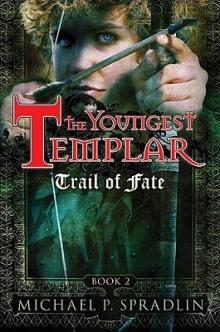 Trail of Fate
Trail of Fate Alcatraz
Alcatraz Every Zombie Eats Somebody Sometime
Every Zombie Eats Somebody Sometime Keeper of the Grail tyt-1
Keeper of the Grail tyt-1 To Hawaii, with Love
To Hawaii, with Love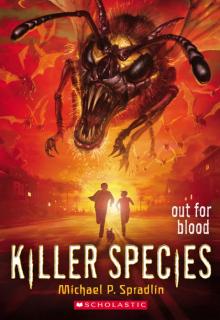 Out for Blood
Out for Blood The Spy Who Totally Had a Crush on Me
The Spy Who Totally Had a Crush on Me The Enemy Above
The Enemy Above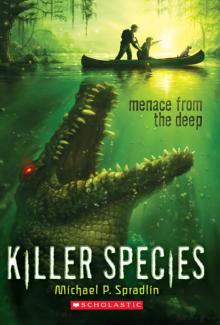 Menace From the Deep
Menace From the Deep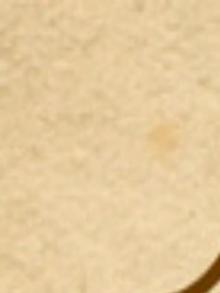 It's Beginning to Look a Lot Like Zombies
It's Beginning to Look a Lot Like Zombies Feeding Frenzy
Feeding Frenzy 3 The Spy Who Totally Had a Crush on Me
3 The Spy Who Totally Had a Crush on Me Keeper of the Grail
Keeper of the Grail Prisoner of War
Prisoner of War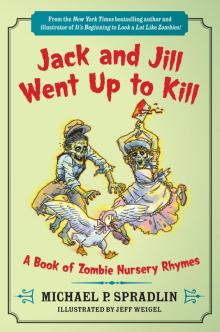 Jack and Jill Went Up to Kill
Jack and Jill Went Up to Kill Live and Let Shop
Live and Let Shop Blood Riders
Blood Riders Ultimate Attack
Ultimate Attack